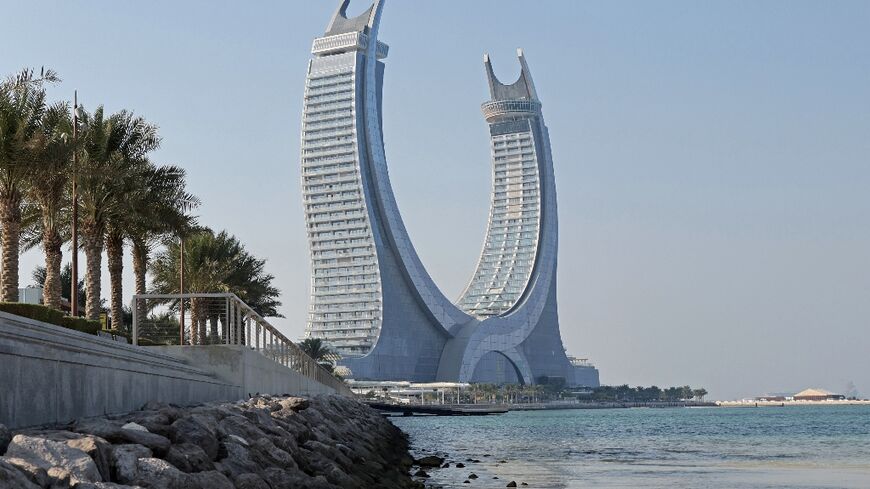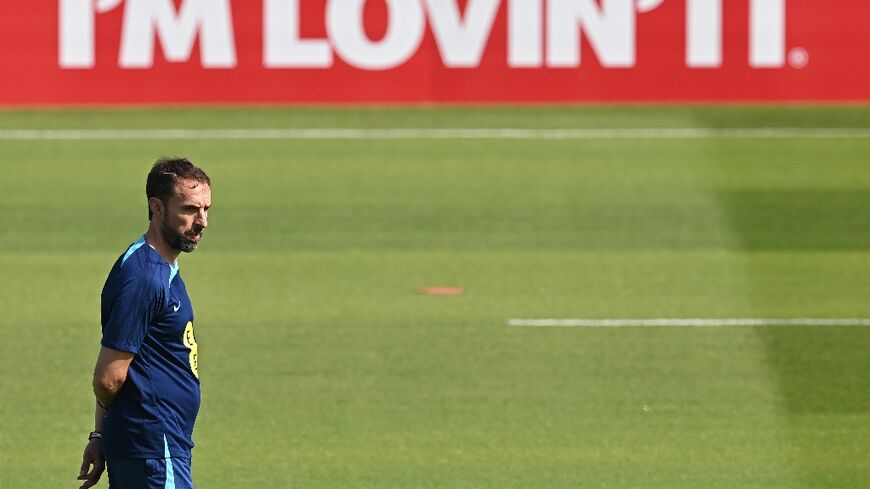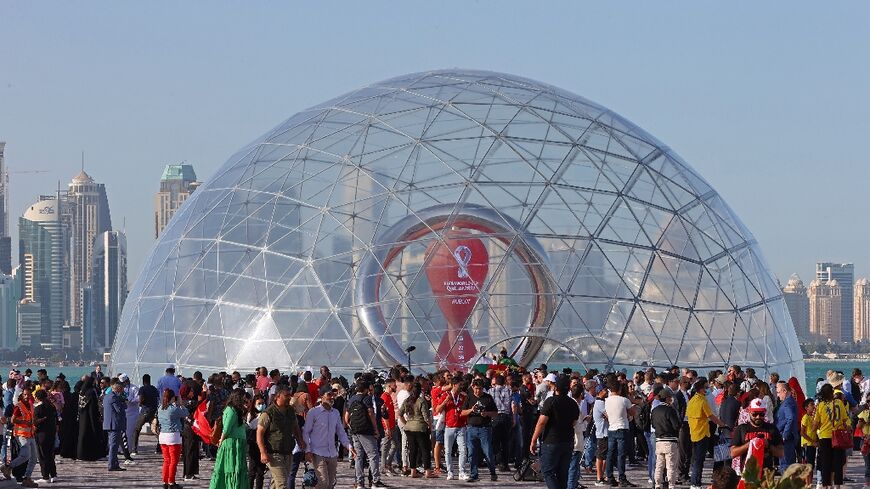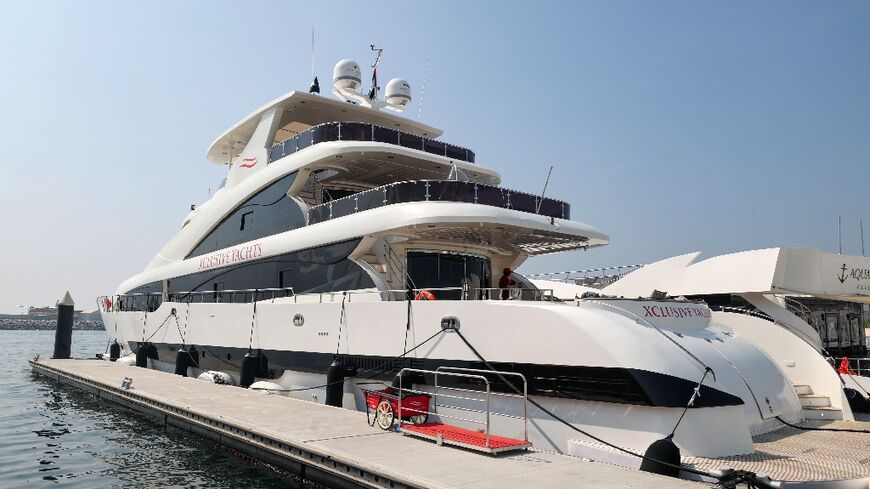World Cup without booze makes for 'different' atmosphere
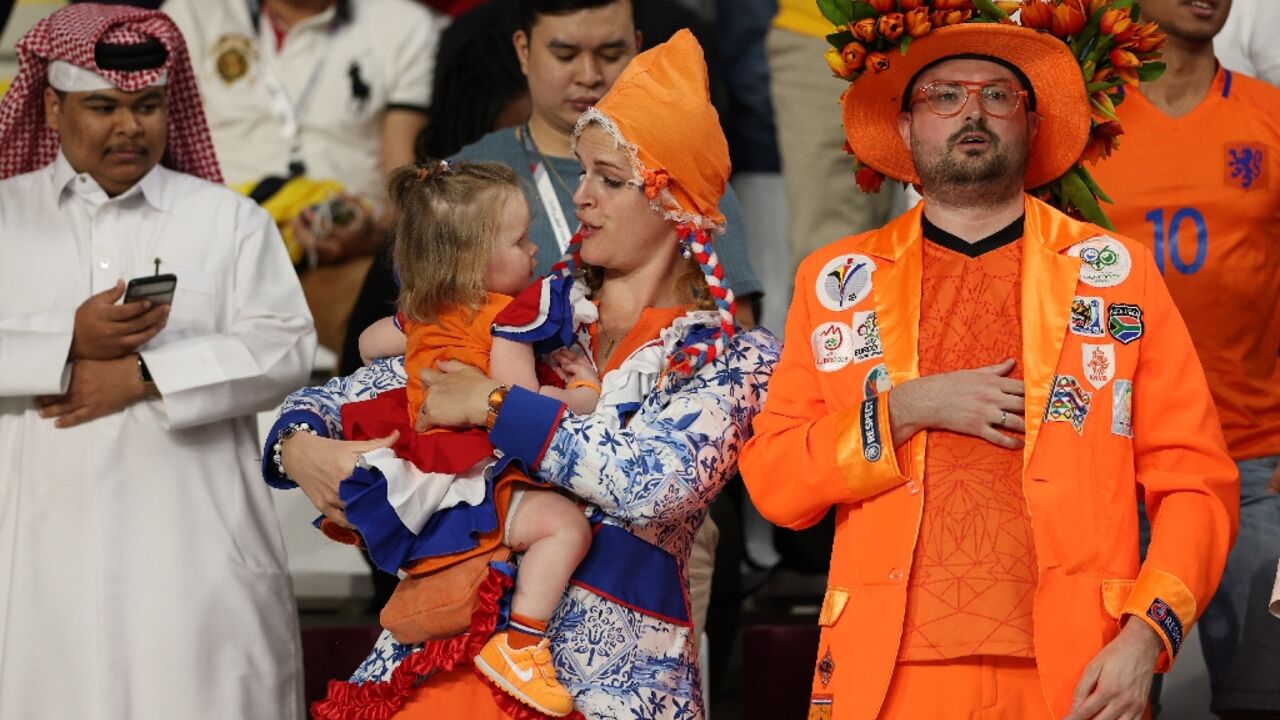
World Cup fans in Qatar say the atmosphere is different without alcohol -- but they are divided over whether that is good or not.
Some say the absence of booze in stadiums and its limited availability elsewhere in the Arab nation has detracted from the atmosphere inside and outside stadiums.
Others say it has made no difference or even improved it, making it more family-friendly and less aggressive, and want it replicated at future World Cups.
The sale of alcohol at World Cup stadiums in Qatar was banned two days before the tournament in a policy U-turn, although it is available at fan zones and most international hotels.
"It has brought some positivity to the World Cup," said Ghana fan Assenso Ata Peter ahead of the Black Stars' tournament-ending defeat to Uruguay on Friday.
"The conduct of the supporters has been so very good, so nice because they are not drinking alcohol," added the 40-year-old.
"If we continue with this, the tournament can continue to be successful every time."
Mike and Luke, in Qatar to watch Australia's surprise run into the knockout stage, were clutching water and soft drinks as they caught the game between South Korea and Portugal at Education City Stadium.
"It's hard, it's hard (without alcohol), it definitely takes the edge off the atmosphere, it's not as... it's different," said Luke, 39.
"It's more like a family atmosphere as opposed to a party atmosphere -- you've got families, kids, they're the ones that are doing the cheering," added 36-year-old Mike.
Kang Yong-ki, who was at the same game, said no alcohol was allowed at matches at home so he could live without it.
"I suspect some of the atmosphere would be higher (more intense) if alcohol existed but generally it's not very different with alcohol or not," said the 45-year-old from Seoul.
"But of course it's good for families," he added.
For the majority of men and women supporters AFP spoke to, they said it made no difference to them, either because they do not drink alcohol or it is never allowed at football in their country anyway.
And matches particularly involving teams from South America and North Africa have still played out in front of electric atmospheres.
"I really don't care, I'm just here to watch Cristiano Ronaldo," said "Amanda" from Lebanon, who preferred not to give her real name.
"I don't know why the world is making such a big deal of it."
- 'Most diverse tournament' -
England fans have long been associated with alcohol-fuelled disorder and the final of the European Championship at Wembley in the summer of 2021 between the home side and Italy was marred by hooliganism.
There was heavy drinking, and also drug-taking, among some England supporters.
Kevin Fulcher and Kevin Hall, who have travelled across the globe to watch England, said they had no problem with the lack of alcohol.
"I think in some ways, when people have had a drink, the edges can get a bit blurred and it might create issues among football fans," said Hall, 63.
"Whereas if you're sober, you're less inclined to have confrontation.
"We've not seen any confrontation whatsoever -- you're all mixing coming out of the ground.
"We've been to other tournaments and I think this one is more diverse than any other in terms of youngsters."
Fulcher added: "You see families, kids, I've seen babies in stadiums."
They could not pinpoint the reason for that but said it was not necessarily down to the lack of alcohol.
Chief Constable Mark Roberts, head of Britain's football policing, called the behaviour of England and Wales fans in Qatar "exemplary" and said there had been no arrests or incidents among those supporters.
He said that the atmosphere at games involving England and Wales had been "passionate but friendly".
"It would be wrong to entirely attribute good behaviour to the restrictions on alcohol, but I do think it has helped to some degree," he said in comments to AFP.


